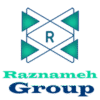The world is getting fast, and digital tools are totally changing the way of work or study. For students, indulging in this digital work as a part of academics is not a trend but one big shift that brings effectiveness and responsibility into their lives. At the helm of this change are a host of digital tools and platforms that aid better organization, collaboration, and time management. As such, with every step that propels us deeper into this digital evolution, it becomes pressing to consider how these developments are reshaping student experiences to be ready for success in the future.
The Power of Digital Tools: Streamlining Work Processes
Revolutionizing Time Management
Digital tools have dramatically changed the way students organize their time and tasks, increasing their level of organization and productivity. These applications—including calendar, to-do, and project management applications—provide features that are critical to student schedules in making better plans. Calendar apps allow students to track classes, study sessions, and extracurricular activities through a layout that provides an overview, thus keeping time in effective balance.
Students can make lists of subtasks in their to-do list apps. It is quite simple because all these tools offer all the necessary features, which include the prioritization of tasks, due dates, and reminders that make the student focus and be organized. In this way, setting up and tracking tasks will help prevent procrastination and assure hitting major deadlines.
Project management software goes further to provide enhanced features for sophisticated assignments and projects involving groups. These include collaboration tools, task assignment, and progress tracking, allowing students to coordinate efforts, share resources, and keep in touch. Students can deal with multiple projects by viewing the timelines and dependencies using graphical tools such as Gantt charts and Kanban boards.
Through these digital tools, students have better control over work prioritization, setting realistic goals, and monitoring their progress. This level of organization can only increase productivity and decrease stress, therefore allowing students to meet their academic obligations with greater efficiency and effectiveness.
Enhancing Organization and Accessibility
No more heavy books and notebooks—there comes a new e-platform. Indeed, change really affects everything, including the way students store and manage their study materials. Cloud storage allows for study materials like notes, assignments, and other such documents to be kept in one place and thus be accessible from any device with an internet connection. Such digital organization will make handling documents for your academics easier and reduce the potential for misplacing important documents to near zero.
Due to the availability of all resources and their good organization, students are able to have an optimized workflow that provides minimum administrative time and more time to learn. Easy access to materials from multiple devices implies that students can study and complete assignments anywhere and at any time, enhancing flexibility and productivity. This e-approach of managing academic materials is not only efficient but also facilitated focused and effective learning.
Collaborative Digital Work: Building Teamwork Skills
Facilitating Seamless Group Projects
Digital tools really are changing the way students collaborate on group projects. In fact, with the advent of web-based collaboration tools—shared documents and virtual workspaces, for example—students are able to work on these group assignments from anywhere in the country. Tools like these provide features such as real-time collaboration, simultaneous editing, comment threads, and version history to facilitate good teamwork and communication.
Students can contribute ideas, set tasks, and track progress—everything each member of the team can do to secure the successful outcome of the project. Collaborating in real-time increases coordination and problem-solving dramatically. This will not only help to enhance the overall quality of group work but also to develop truly relevant skills in teamwork and communication within the cycles of both academic and professional life.
Developing Digital Communication Proficiency
Successful collaboration is pegged on effective communication; in this digital life age, there are many various interaction channels made possible through digital tools. Students can easily collaborate with other peers and instructors through real-time communications via a number of available platforms, such as chat, video conferencing, or emailing. These tools make clear and concise exchanges of ideas, feedback, and updates, further democratizing the process of learning.
Their skills will spread into self-expression, constructive feedback, and dispute resolution. These are relevant skills that would widen their scope of success within the confines of academia and their future professional lives. Coupled with making effective connections with other people, digital communication proficiency enables learners to collaborate well with others in groups. This is a fundamental ability in the establishment of cooperative ties that end up in ineffective deliveries of products within the academic and professional societies.
Fostering Responsibility Through Digital Work
Encouraging Self-Directed Learning
Digital tools place students squarely in control over their experiences regarding learning. This generation of a student, equipped with online resources, educational applications, and interactive platforms, enables subjects to be pursued beyond the rigid parameters of the traditional classroom and tailor this learning to personal interests and needs. This independent approach creates increased responsibility for one’s education and a felt sense of ownership over the process of learning.
Setting personal goals and drawing on a variety of digital resources can facilitate students’ deeper subject insights and give them the ability to study independently. With such an active learning strategy, students are able to delve further into academics while developing the art of problem-solving and fighting odds alone in the near future. By taking this very proactive measure, students could learn to become more independent learners and ultimately succeed not only in current academic pursuits but also throughout future studies and professional careers.
Promoting Accountability and Transparency
Digital work tools provide features that greatly improve accountability and transparency. Some platforms have tracking and reporting features to let students trace their progress, view completed tasks, and see how well they perform. At this level of transparency, students are better placed to understand their strengths, weaknesses, and make informed decisions on their academic goals.
Moreover, the sharing of progress with teachers and peers does give room to develop accountability within the classroom. Students are responsible for the deadlines given to them in group projects and actively take part. This openness does not increase individual responsibility alone but rather strengthens group efforts, hence building into an effective, responsible learning environment.
Overcoming Challenges: Navigating the Digital Landscape
Addressing Digital Distractions
Though digital tools bring with them many advantages, they also bring some challenges, particularly in the form of digital distraction. Social media, gaming apps, and other online diversions that draw attention and productivity away from study can be effortless. Effectively tending to these distractions needs the adoption of strategies to keep students focused on their academic tasks.
Specific techniques to realize increased concentration by a student include scheduling regular digital breaks, using productivity apps, and having a study area. It creates times for breaks, and a student will stay refreshed without experiencing burnout. Productivity tools help students account for their time and stay on task. Distraction-free study environment gives a clear tone of the work session by limiting or minimizing the interjections.
By applying these strategies, students will be better equipped to balance digital interactions and not be distracted from their academic duties, attaining higher levels of efficiency. This is the proactive way through which they can work their way around the digital jungle, attaining maximum productivity and academic excellence.
Ensuring Digital Literacy and Security
Greater reliance on digital tools further underlines the requirement that students have the proper skills in the areas of digital literacy and cybersecurity. Some of the key competencies related to responsible digital work include the effective use of digital tools, protection of personal information, and safe navigation within online resources.
Digital literacy and cybersecurity educational programs therefore become especially important in ensuring that students acquire these skills. In these, learners will be empowered with the knowledge of how to use their online activities responsibly, protect their personal and academic data, and lay good foundations for confident and secure navigation within the digital world.
Hence, articulating these competencies gets the student ready to meet challenges in the digital world with agility, be able to use the technology effectively, and protect personal information and privacy.
The Future of Digital Work: Preparing for Tomorrow
Adapting to Technological Advancements
Students need to be flexible and adjustable in their approach towards modern technologies and tools within the rapidly changing digital environment. It helps to stay updated with the trends and novelties of digital work to maintain competitiveness and flexibility at university and work levels. As digital technologies remain on a path of constant evolution, students who are proactive about understanding and onboarding those changes will have a better position for success.
It allows students to engage efficiently and responsibly with new technologies through continuous learning and adaptability. This puts them ahead in time for the emerging trends and makes them better positioned in handling complications that may emanate from the rapidly changing digital environment. Students will want to seek and embrace new technologies that bring improvements and seek further honing of relevant skills to navigate the digital world confidently and effectively.
By embracing these developments and using new tools, students would be better placed to accommodate the changes in technology and therefore achieve success in academics and their careers. Only through an openness to change are students able to keep up with the dynamic environment and hence maximize new opportunities for greater success within a shifting digital landscape.
Cultivating a Digital-First Mindset
A digital-first mindset is rapidly becoming central in a digitizing education space and workforce. Digital work should not be an add-on but part of learning and professional development. This attitude gives them maximum use of digital tools to optimize workflows.
A digital-first approach teaches students how to handle the complexities of a fast-moving world and helps them deal with new challenges confidently. It places them ahead in their academic and professional pursuits, matching into a lifestyle were digital technology blends seamlessly into ordinary life. This mindset strengthens not only the skill of managing tasks and projects better but also the core role digital technology assumes in modern educational and professional environments.
By giving priority to digital tools and methods, students can work out a better organization of the learning process, enhance collaboration, and adapt to emerging trends much more easily. This proactive stance for excellence in a competitive landscape helps one to be at the top in chosen fields and thus sets up the people adequately for further success.
Embracing the Digital Revolution
In other words, digital work plays a key role in student efficiency and responsibility through time management, organization, and collaboration. Digital tools are one of the best channels to help students better manage their academic tasks, thus simplifying workflow and reducing administrative burdens for students who are supported by tools that keep them organized via storage in and access from one place, deadline tracking, and prioritization of tasks.
Moreover, it digitalizes critical factors of teamwork and communication in class. Platforms that allow real-time collaboration, and grant features such as shared documents, comment threads, and project management features, further ease students’ ability to collaborate. The collaboration works not only toward enhancing the quality of projects that groups come up with but also toward enhancing clarity in communication, provision of constructive feedback, and resolution of conflicts among students. These skills are critical in both academic and professional pursuits.
Moreover, digital tools promote the development of self-directed learning and responsibility. These tools involve students in proactive participation in their studies through various online resources and educational applications that enable them to set personal targets, track progress, and manage their processes of learning all by themselves. All this fits very closely with the considerably basic constituents of academic success and lifelong learning.
This definitely brings with it problems related to dealing with digital distractions and making sure that the children gain overall digital literacy. Yet, the benefits far outweigh these obstacles. Proper planning and educational courses can help address these challenges, thereby enabling students to harness the full potential of digital tools while maintaining focus and security.
Looking ahead, further embracing digital evolution and fostering a digital-first mindset will be very empowering to students. Students will need to adjust to and use modern technologies to help them thrive in an increasingly digital world that will support the sustainability of their preparation for future success at school and work.

Zineb Filali
Sales and Marketing
Raznameh Group

